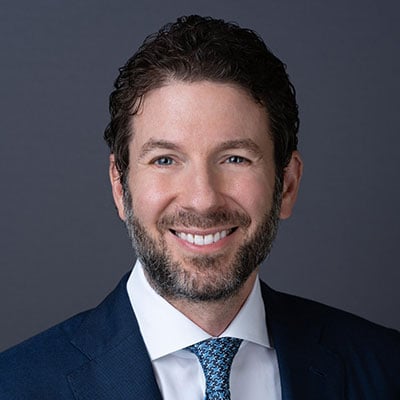An In-House Lab for Future GCs
Baxter International, the global health care company based in Chicago, was feeling the economic pinch two years ago, and its legal department was looking for ways to cut costs. General counsel David Scharf found a unique answer: He turned several legal projects over to an innovative corporate lab at the University of Chicago Law School. And he's been delighted with the results.
Baxter's lawyers "coach" the students, often holding meetings with them in the company offices. "It's a win-win," Scharf says, explaining that the students receive real-world corporate legal experience while "we get outside law firm–quality projects done at no cost to us."
He says the law students have worked on about ten projects for Baxter, including pending ones. They range from exploring how a specific law applies to a certain company situation to helping Baxter set up a venture capital fund by examining other venture-type arrangements within the industry.
Microsoft Corporation was the first company to "employ" the corporate lab in 2009, but 11 other major companies have joined in. The lab was started by associate dean David Zarfes, with the help of lecturers Michael Bloom and Sean Kramer, who is also an associate at Kirkland & Ellis in Chicago. Zarfes says he conceived the idea because "students in the classroom didn't know what I was talking about when I used everyday concepts in transactional law."
Zarfes, a former general counsel at Paris-based Cap Gemini Ernst & Young, says the lab provides practical legal experience with global companies to some 70 second- and third-year law students. The students learn firsthand how to provide client services. "To my knowledge, we are the only law school in the country to have anything like this," Zarfes says.
Zarfes, Bloom, and Kramer oversee the students, who work on projects in teams. Zarfes says they are graded on the quality of their work, responsiveness to the client, and ability to work well with their colleagues. Companies are not charged a fee. "This is not pay to play," he explains. "Some companies have opted to donate money to the law school, but others do not." Although the program is sometimes considered a special type of externship, Marsha Nagorsky, assistant dean for communications and a lecturer at the law school, said that term "extern" is technically incorrect. Nagorsky said the students are not actually placed with companies, and all their work is done at the school, except for occasional client meetings that might take place on-site. “This is very much a law school course that works on real-world problems," she added.
Some projects involve simple contracts with quick turnaround times. Others are more involved and take months. For example, Zarfes says students worked with Microsoft on a Foreign Corrupt Practices Act project that resulted in a paper being published by an American Bar Association FCPA task force.
Microsoft deputy GC John Frank says the student work has been invaluable. The externs researched and helped write an FCPA manual that spells out what the U.S. Department of Justice expects a compliance program to include. They studied cases, speeches, and press interviews with Justice lawyers. "That's probably too expensive to ask an outside counsel to do, but for the students it was great," Frank says.
The next step, he adds, is to convene a roundtable with experts from government and industry to talk about "ambiguities—you don't want to guess what the right thing is." The externs, he says, will lead the preparation for that. "I wish there had been something like that when I was in law school," he adds.
Besides Microsoft and Baxter, other companies involved with the project include Accenture plc; Allstate Insurance Company; International Business Machines Corporation; Integrys Energy Group, Inc.; JPMorgan Chase & Co.; Neiman Marcus, Inc.; Northern Trust Corporation; Schreiber Foods, Inc.; Sony Corporation; and Verizon Communications Inc. Lab speakers have included GC Jerry Smyth of Schreiber Foods; associate GC James Roselle from Northern Trust; and Vanita Banks, in-house counsel at Allstate and former president of the National Bar Association.
Anthony Sexton, now a judicial clerk at the U.S. Court of Appeals for the Seventh Circuit in Chicago, calls the lab his best experience in law school. He says it gave him exposure to things he never saw in the classroom. "You get into real problems and interface with attorneys and companies," he says. "And you integrate their feedback in the work, revamp it, submit it again. It's very different from the law school final exam paradigm."
There are added side benefits for students. Some have taken permanent or temporary jobs with companies they've served. Scharf, for one, says Baxter is keeping its eye on some especially bright prospects for future employment.
And students may eat better. Scharf is planning to take in-house lawyers and externs who worked on a recent project out to dinner.
"We have really appreciated their work," he says.
REPRINTED WITH PERMISSION FROM THE MARCH 1, 2012 EDITION OF THE AM LAW LITIGATION DAILY © 2012 ALM MEDIA INC. ALL RIGHTS RESERVED. FURTHER DUPLICATION WITHOUT PERMISSION IS PROHIBITED

